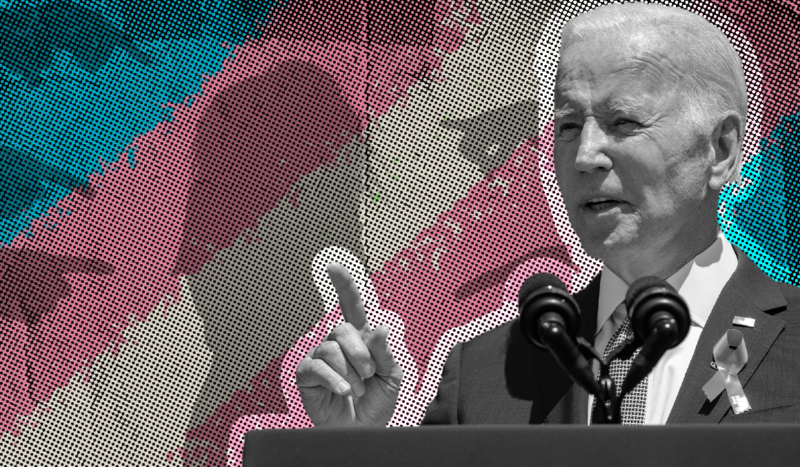
The Biden administration has proposed a guideline on harassment in the workplace that includes “misgendering” employees under the legal umbrella of sex-based harassment.
The U.S. Equal Employment Opportunity Commission (EEOC), the federal agency responsible for regulating workplace discrimination laws, is seeking to replace current legal definitions of sex-based harassment to include “reproductive decisions… about contraception and abortion” as well as “sexual orientation and gender identity.”
Offenses listed in the rule range from failure to use “preferred pronouns” to using an employee’s original name rather than his or her “preferred name.” Employees could also sue employers who refuse to allow males identifying as women to enter women’s spaces such as bathrooms.
The EEOC will accept the public’s comments on the proposal for 30 days from its publication.
Unlike a “rule,” the new guidelines would not be “legally binding.” The EEOC classified them instead as “sub-regulatory,” meaning they are intended to “communicate the Commission’s position on important legal issues.”
According to CatholicVote Director of Government Affairs Tom McClusky, however, the EEOC’s claim that the rule is legally non-threatening is misleading.
“Saying the rule would represent a ‘legal position’ but not be ‘legally binding’ is sending a clear message to employers with Judeo-Christian values – you are on notice,” McClusky said. Under the guidelines, employers with religious objections to using incorrect pronouns in the workplace will be vulnerable to legal action.
Furthermore, McClusky noted, if the rules governing prosecutions of sex-based harassment were extended to cover misuse of pronouns or “dead-naming” then religious accommodation protections for employers under the Civil Rights Act’s Title VII would be rendered void.
According to the Legal Information Institute at Cornell University, “harassment” is defined in employment law “as offensive, unwelcome conduct based on a victim’s protected characteristic, that is so severe or pervasive that it affects the terms and conditions of the victim’s employment.”
The EEOC document offers a hypothetical case in which an employee might sue an employer for harassment under the new guidelines. “Jennifer” is presented as a male “who identifies as female.” Jennifer’s
supervisors, coworkers, and customers regularly and intentionally misgender her. One of her supervisors, Allison, frequently uses Jennifer’s prior male name, male pronouns, and “dude” when referring to Jennifer, despite Jennifer’s request for Allison to use her correct name and pronouns; other managers also intentionally refer to Jennifer as “he.”
In this case, Jennifer alleges harassment “based on her gender identity.”
The new rule continues the Biden administration’s pattern of issuing regulations through the EEOC that place American employers with objections to abortion, trans ideology, and other sex-related agendas in precarious legal standing.
In early August, the EEOC issued a regulation establishing a national mandate for employers to accommodate workers’ abortions under the Pregnant Workers Fairness Act (PWFA).
The alarming rule is open for public comment until November 27, 2023. In particular, the EOCC is seeking comments on whether or not to provide more specific “religious organization provisions” in its rules. CatholicVote is calling on citizens to submit comments via an easy-to-use portal, including by indicating that yes, they do want more religious provisions.
>> Tell the EEOC to respect religious freedom. <<

